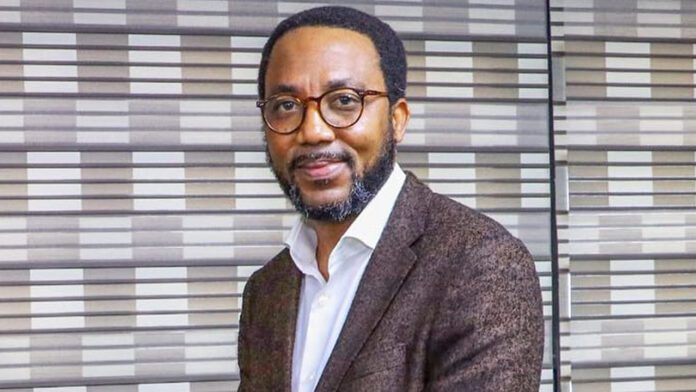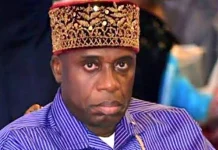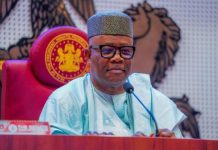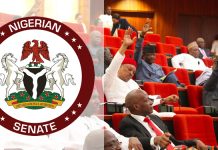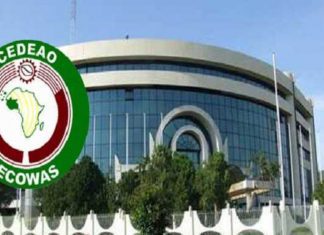According to the Nigerian Ports Authority, the Federal Government intends to build another deep seaport within the next three to four years.
In an interview with Nigerian Ports Today, a quarterly publication of the organisation, which our correspondent happened to see, Muhammad Bello-Koko, the managing director of NPA, made the statement.
Bello-Koko announced that proposals for the construction of additional seaports in the nation had been received while providing an update on the recently approved Badagry deep seaport.
“If we examine what transpired at the Lekki Deep Seaport, it took at least three years, and we anticipate that another deep seaport will be built in the following three to four years. Thus, the Federal Government has given its blessing to the Badagry deep seaport. We are working with the Federal Ministry of Transportation and other governmental organisations to ensure that the business case is properly developed, and the other ports are still under development. A proposal has been set up for each of these port locations. After the problem with financial construction, I think the majority of them would have finished their financial arrangements, received the necessary approvals, and some of them would already be working. We can anticipate seeing at least one or two seaports in the next four to five years.
However, the NPA boss revealed that in 2023, the agency’s revenue had increased by between 60% and 70%.
Bello-Koko claimed that more cargoes headed for neighbouring countries had been intercepted by the agency in the previous eight years.
“This indicates that we have more cargo traffic entering the country, which has increased the country’s gross domestic product and also increased the revenue of the NPA,” he said.
The NPA boss continued, saying that the organisation had noticed increased activity in the Calabar port and that it wanted to make sure that the tariff trickled down to the final consumers.
“What was done has more to do with Calabar port, and we have noticed an increase in activity as a result of encouraging people to bring large vessels into that port. However, we will make sure that this tariff is passed on to the final consumers.
Bello-Koko added that the organisation had formed a committee to oversee the use of the reduced tariff to entice importers to use the Calabar port.
“That is, if the tariff is reduced, we should be able to bring a container to Calabar even though it costs me a million naira to bring it here. A committee is working on this. To make eastern ports profitable, you must consider more than just tariffs. You must also guarantee the area’s security, which is why we are collaborating with the Nigerian Navy.
Despite the nation’s rising inflation, Bello-Koko revealed that the NPA had not reviewed port tariffs in 30 years.
In a television interview on Tuesday night, he said this.
He claims that the organisation only examined its towing services between 2012 and 2014.
He stated that since 1993, the government had been using the same rates.
Read Also: OPC officers in Ogun detain a suspect in robbery
Since 1993, the NPA has not raised its tariff. As of right now, we continue to apply the rates that we have been since 1993. 1993 marked the last time the NPA raised its tariff. Although there may be high costs associated with doing business at the ports, we haven’t raised our tariff in 30 years.
He claimed that while business expenses might be rising, this wouldn’t be related to NPA tariff rates.
“The NPA raised the price of towage in either 2012 or 2014. Since 1993, every other tariff has remained the same. Although the cost of doing business may be rising, the NPA’s tariff and rates are not to blame, he argued.
According to Bello-Koko, the agency only unified the tariffs in 2012.
“In 2012, we merged and harmonised the tariffs because there were so many of them. Before that, anyone looking for our tariffs will find a lot of them disassembled. So, what we ultimately did was merge them, he said.
Regarding port construction, the NPA MD claimed that even though every port requires some level of renovation, the situation at Tincan Port is the worst.
“We have been working palliatively and attempting to control the situation. However, we believe that palliative works are no longer viable at this point.
“In order to check those infrastructures, we conducted a NEEDS assessment for the entire authority. Following that, we decided it was time to completely rebuild those infrastructures. The worst condition, in a terrible state, is at Tincan Port. We think it’s time to rebuild and restore Tincan Port. Other ports also have some quays that require renovation. Nearly all of the ports, including Apapa, Warri, Calabar, and Onne, require some quay rehabilitation. Our analysis revealed that we require about $800 million in order to renovate all the ports, the man said.
Join Television Nigerian Whatsapp Now
Join Television Nigerian Facebook Now
Join Television Nigerian Twitter Now
Join Television Nigerian YouTUbe Now

